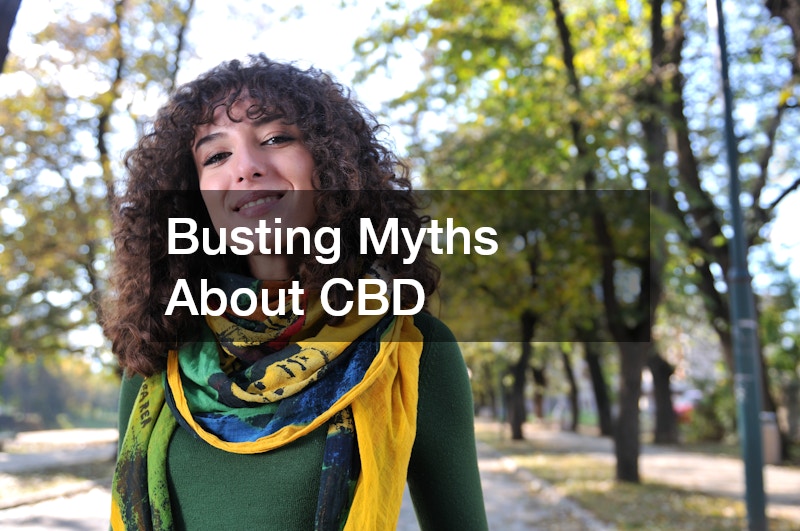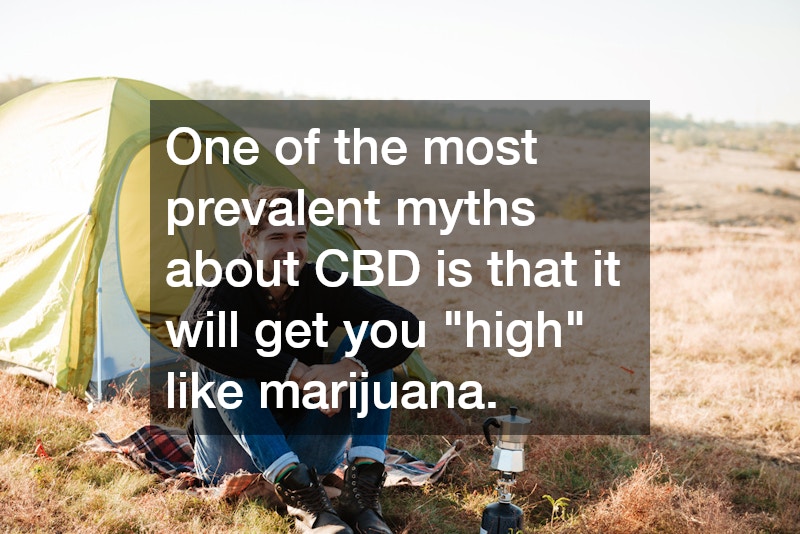Busting Myths About CBD


Over the past few years, CBD has gained significant popularity for its potential health benefits. From anxiety relief to pain management, CBD has been touted as a natural remedy for various conditions. Despite its growing popularity, there are still many misconceptions surrounding CBD that can leave consumers confused or hesitant about trying it. If you’ve ever visited a CBD store or researched CBD products, you’ve likely come across some of these myths.
In this blog, we’ll break down some of the most common myths about CBD and provide you with the facts, so you can make informed decisions about whether CBD is right for you.
1. Myth: CBD Will Get You “High”
One of the most prevalent myths about CBD is that it will get you “high” like marijuana. This misconception stems from the fact that CBD comes from the cannabis plant, which is also where marijuana originates. However, the key difference lies in the chemical compounds present in each.
Marijuana contains high levels of tetrahydrocannabinol (THC), the psychoactive compound responsible for the “high” feeling. CBD, on the other hand, is a non-psychoactive compound. While both THC and CBD are derived from cannabis, they have entirely different effects on the brain and body.
When you purchase products from a reputable CBD store, you can be confident that these products will not cause intoxication. CBD products sold legally in most places contain either no THC or only trace amounts (less than 0.3%), which is not enough to produce any psychoactive effects.
2. Myth: All CBD Products Are the Same
Another common misconception is that all CBD products are created equal. The truth is that CBD products can vary greatly in quality, concentration, and efficacy depending on factors such as the source of the hemp, extraction methods, and additional ingredients.
There are three main types of CBD products:
Full-spectrum CBD: Contains all the cannabinoids found in the cannabis plant, including small amounts of THC (but still under 0.3%).
Broad-spectrum CBD: Contains a wide range of cannabinoids but has had the THC removed.
CBD isolate: Contains pure CBD with no other cannabinoids or THC.
When choosing products from a CBD store, it’s important to understand these distinctions and select a product that fits your needs. Additionally, you should always look for products that have been third-party tested for quality and potency, ensuring that you’re getting what the label claims.
3. Myth: CBD Works the Same for Everyone
While many people report positive results from using CBD, it’s important to understand that it does not work the same for everyone. The effects of CBD can vary depending on factors such as individual body chemistry, dosage, and the condition being treated.
Some people may feel immediate relief after taking CBD, while others may need to use it consistently for several days or weeks before noticing any benefits. Additionally, the dosage that works for one person may not be effective for someone else, which is why it’s important to start with a low dose and gradually increase until you find the right amount for your body.
If you’re unsure about where to start, the staff at your local CBD store can provide guidance on how to use CBD effectively based on your specific needs and goals.
4. Myth: CBD Is Addictive
Another myth is that CBD is addictive. This misconception likely stems from the association between CBD and cannabis. However, research has shown that CBD is not addictive, and in fact, it may help reduce dependence on substances like opioids and nicotine.
Unlike THC, which can create a psychological dependency in some users, CBD does not have the same effects. According to the World Health Organization (WHO), CBD has no potential for abuse or dependence, making it a safe option for those seeking relief from various conditions without the risk of addiction.
5. Myth: CBD Is Illegal
There’s often confusion surrounding the legal status of CBD, which has led some people to believe that it is illegal. In reality, CBD derived from industrial hemp (which contains less than 0.3% THC) is legal at the federal level in the United States, thanks to the 2018 Farm Bill. However, the legality of CBD can still vary from state to state and country to country.
Before purchasing CBD products, it’s important to familiarize yourself with local laws and regulations. Most CBD stores operate within the bounds of the law and sell products that comply with federal guidelines, but it’s always wise to double-check the rules in your area.
6. Myth: CBD Cures All Ailments
While CBD has been shown to offer potential benefits for a variety of health issues, it’s important to recognize that it is not a cure-all. Some people believe that CBD can treat everything from chronic pain to cancer, but there is still much research to be done before such claims can be substantiated.
CBD can be a helpful supplement in managing certain conditions, such as anxiety, inflammation, and pain, but it is not a replacement for traditional medical treatment. It’s always best to consult with a healthcare provider before starting any new treatment regimen, especially if you have underlying health conditions.
.
